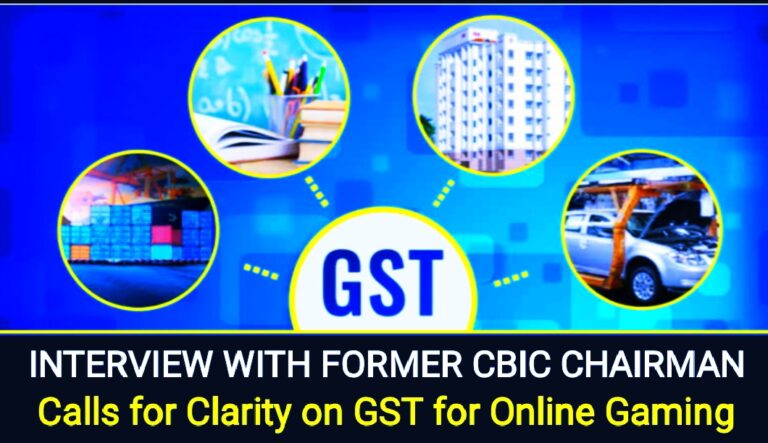Interview with Former CBIC Chief Mr. John Joseph on GST for Online Gaming
In a recent discussion, John Joseph, former chairman of the Central Board of Indirect Taxes and Customs (CBIC) and current Strategic Adviser with DeepStrat, highlighted key insights into the evolving GST regulations in the online gaming industry. Amid ongoing debates on retrospective and prospective implementation of amendments, Joseph stressed the critical need for clear guidance from the government and the GST Council. Here’s a breakdown of the interview:
Clarification on GST for Online Gaming
Joseph emphasized the importance of legal certainty for the industry, investors, and employees. He pointed out that the GST Council’s discussions and recent amendments brought by CBIC did not mention retrospective application. Advocating for clarity through guidance and clarificatory statements, Joseph urged the Council to communicate its intentions effectively, maintaining economic interests and revenue objectives.
He noted that the GST Council’s intent was to raise the effective tax rate on the online gaming industry, citing the common practice of paying GST on platform fees or commissions. Joseph highlighted the historical lack of clarity in GST laws and the need for consistent trade practices.
Impact of Retrospective Implementation
Joseph addressed concerns about online gaming companies receiving tax notices for previous years despite Finance Minister Nirmala Sitharaman’s assurance of prospective rules. The amendments brought by CBIC, effective from October 1, 2023, introduced specific definitions, a 28% tax rate, and changes in taxable value. He clarified that these amendments apply prospectively.
However, some central authorities issued notices demanding GST retrospectively from July 1, 2017. Joseph warned that this interpretation could lead to substantial tax demands, contradicting the GST Council’s intent and undermining legal certainty.
Previous Taxation Practices
Explaining the earlier taxation practices, Joseph outlined that online money gaming wasn’t explicitly defined, and certain actionable claims were exempt from GST. Online gaming fell under the OIDAR category, with companies paying 18% GST on platform fees. The tax collected ranged from 6-8% of the deposit due to multiple redeployments. Post-amendments, the entire deposit is subject to a 28% tax rate.
Assessment of New Amendments’ Impact
Joseph acknowledged the online gaming industry’s global emergence and praised Indian policymakers for swift responses. He affirmed that the amendments brought legal certainty but acknowledged increased tax burdens. Comparing with international practices, Joseph suggested a review of the impact on the industry’s economic health and potential reconsideration by the GST Council.
In conclusion, Joseph stressed the importance of a clarified, prospective application of the amendments for both the industry and the revenue department to meet their goals seamlessly.
To Read the Process of Opting for Composition Levy Scheme under GST CLICK HERE
READ MORE
Jharkhand HC Quashes Criminal Proceedings Relating to Non-Compliance of GST Summon under Section.70
